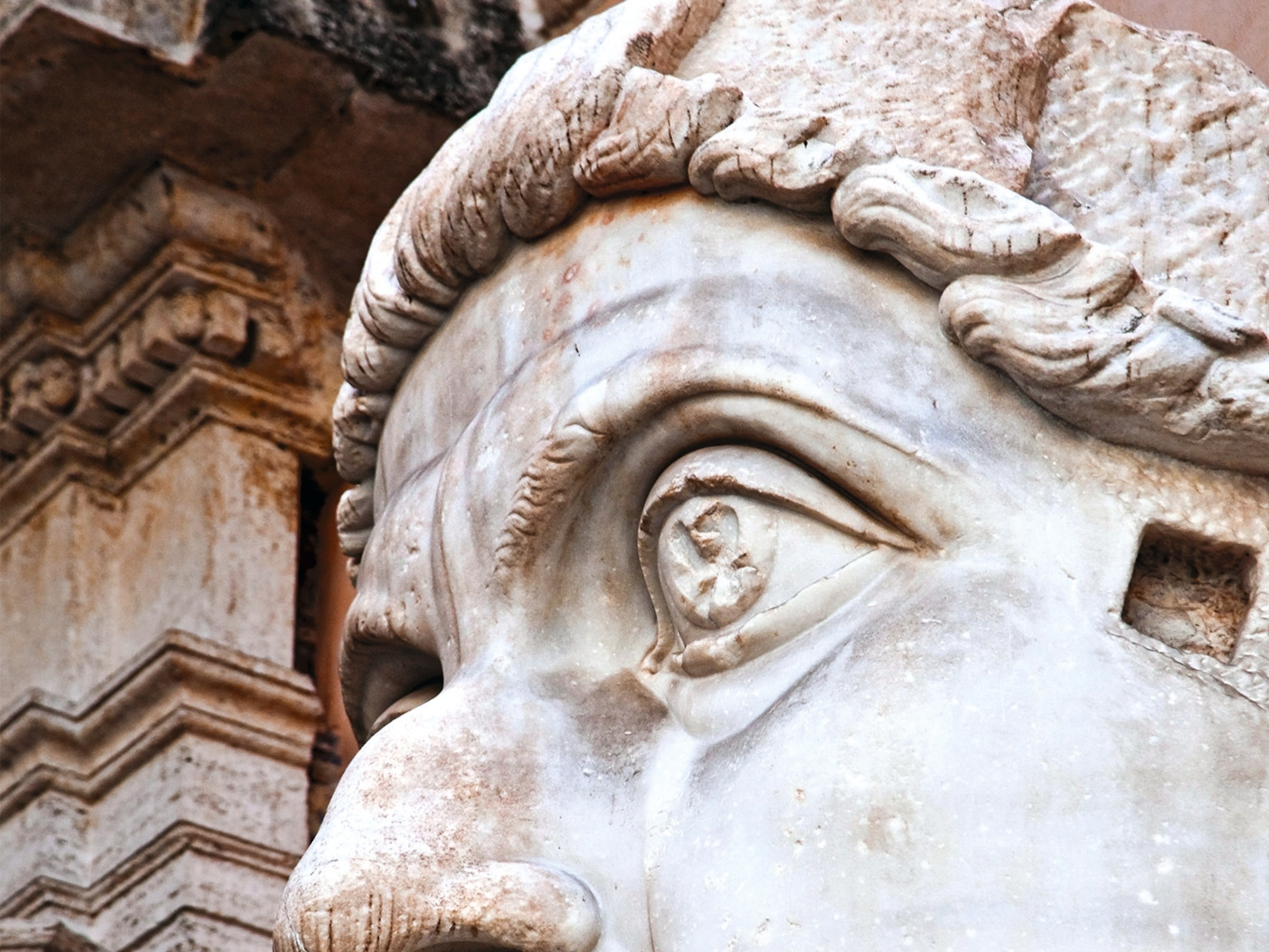
Sex and the Celery: Ancient Greeks Get Busy With Help From Veggies
Sex is not what the average person thinks of when faced with vegetables.
For most of us, memories of veggies are far more likely to involve unpleasant parental dicta about not leaving the table until one has cleared one’s plate. You know what I mean. Some of us sat there for hours, staring resentfully at lima beans.
Historically, however, vegetables have packed a more exciting punch. The garden, traditionally, has been a hotbed of aphrodisiacs. Some sex-food picks may have originated from sheer physical resemblance. The medieval Doctrine of Signatures, for example, argued that the Almighty left medical clues (“signatures”) scattered throughout the natural world, pairing helpful resemblances to body parts with the ailments to be cured. Thus walnuts—wrinkly, like the surface of the brain—were intended to treat head wounds and headaches; and lungwort—whose speckles reminded somebody of diseased lungs—was an obvious choice for pulmonary problems. (See “This Veggie Was the 19th-Century Version of Viagra“)

Phallus-Shaped Food Thought to Boost Sexual Prowess
By the same token, anything even vaguely cylindrical was proposed as a boost in bed. Carrots and parsnips, for example, from the time of the ancient Greeks and Romans, were believed to break down sexual inhibitions; as was asparagus, whose fat stalks pop suggestively out of the ground in April and May.
Cucumbers, on the other hand—a Signature if there ever was one—were traditionally believed to have the opposite effect. Hopeful seducers were warned off the cool cuke, which was believed to have a chilling effect on passion. Similarly, lettuce was to be avoided. Dioscorides—the Greek-trained physician who served as a surgeon to the Emperor Nero’s soldiers—recommended lettuce to protect lonely enlisted men from dreams filled with “libidinous images;” and the 14th-century Tacuinum Sanitatus—the hot health-food text of the times—deemed lettuce positively damaging to sexual intercourse.
Basil, bananas, chili peppers, figs, artichokes, eggplants, pomegranates, garlic, and avocados—which last are the fruit of what the Aztecs tellingly dubbed the “testicle tree”—have all been touted as turn-on foods; and so has chocolate, a New World native reportedly consumed by the Aztec emperor Montezuma in quantity in order to deal with the demands of his harem. Chocolate, chemically, contains the amino acid tryptophan (building block of the neurotransmitter serotonin) and phenethylamine (an amphetamine relative), both of which act as mood elevators–but most researchers agree that there’s not enough of either in the average box of bonbons to make much difference sex-wise.

All You Need Is Love—and Celery
Celery, yet another traditional aphrodisiac, sends mixed messages. The ancient Greeks associated it with death: tombs were trimmed with it, and the dismal classical catchphrase “He now has need of nothing but celery” meant that some unfortunate Greek was about to kick the bucket.
On the other hand, celery was also renowned as a passion promoter. In Homer’s Odyssey, the nymph Calypso lived in an island cave surrounded by irises and wild celery; one theory holds that her capture of Odysseus and their subsequent five-year-long love fest owed a lot to a celery diet. In the 12th-century legend of Tristan and Iseult, the ill-fated pair fall madly and irrevocably in love after drinking a potion containing celery juice. Madame de Pompadour, mistress of Louis XV, fed the king on lust-provoking celery soup; and the legendary 18th-century lover Giacomo Casanova reportedly ate celery to ensure sexual stamina.
The root of celery’s reputation, according to some researchers, is androsterone, a naturally occurring steroid also found in human sweat and urine and in boar saliva. In people (and boars), androsterone acts as a pheromone, making males that exude it more attractive to females. (It’s also a whiff of androsterone that attracts pigs to buried truffles.)
Though pheromones are powerful signals in the animal world, the evidence for their effect on humans is less clear. It may be that the most we get from pheromones is a vague feeling of well-being—though, when it comes to sex, that’s not a bad start.
In fact—disappointingly enough—science doesn’t show that any of our supposed aphrodisiacs do what we fondly hope they do. Any provocative effect we get, most researchers believe, is all in our heads. But that doesn’t mean that sex has nothing to do with food.
“One cannot think well, love well, sleep well,” wrote Virginia Woolf, “if one has not dined well.”




